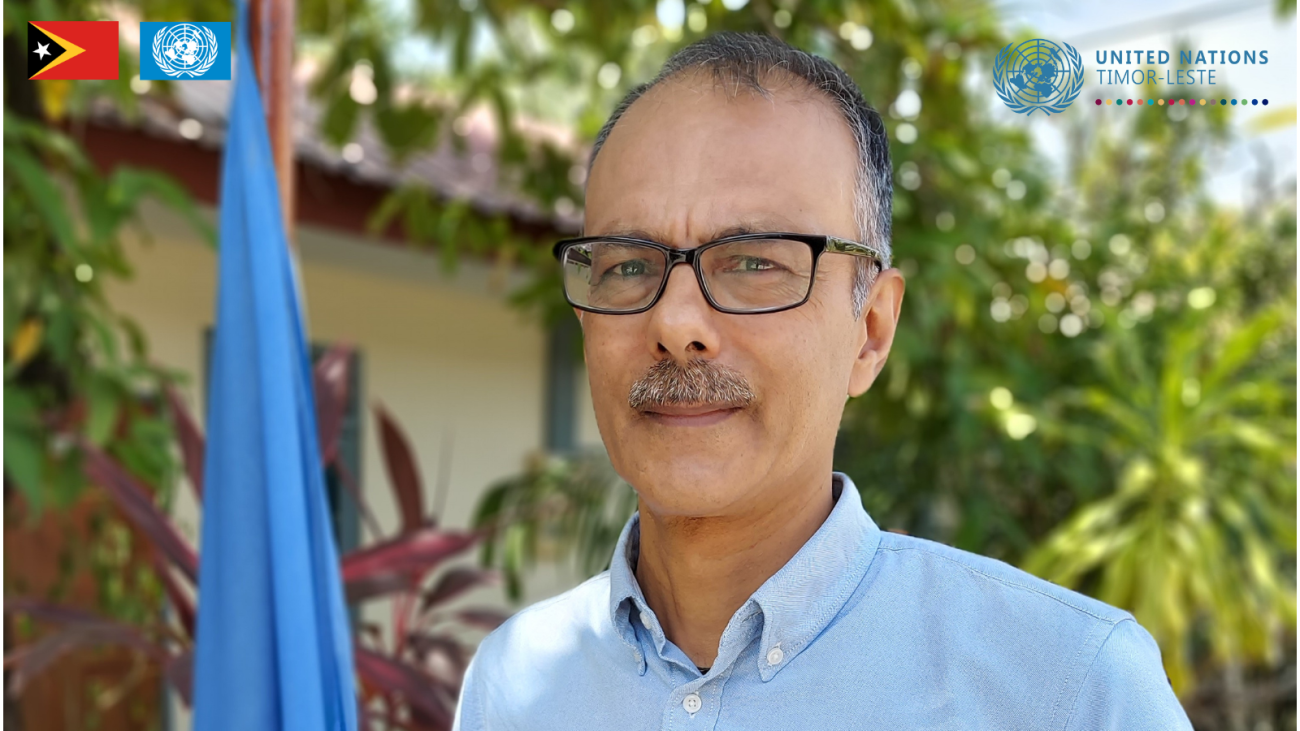‘Timor-Leste has taken remarkable strides in positioning itself as a staunch defender of human rights.’ Roy Trivedy

Op-Ed by UN Timor-Leste Resident Coordinator Roy Trivedy
United Nations Resident Coordinator in Timor-Leste pays tributes to Ms Carmel Budiardjo and recalls when he first met her in the ‘90s. Carmel epitomised the value of upholding and protecting human rights.
Last week the Government approved a vote of condolences for the sad recent passing of Ms Carmel Budiardjo, who in 2009 was awarded the Order of Timor-Leste insignia. Carmel was a tireless human rights activist who I first met in the 1990s when I was working as the International Officer for the UK Labour Party. At that time, Carmel and the TAPOL team were campaigning and advocating for greater international support for Timor-Leste’s struggle to re-gain independence. Carmel is a great example of the vital contribution that human rights defenders around the world make to societies, sometimes even sacrificing their own lives while advocating for human rights, peace and justice – to contribute to building a better world for all.
Carmel’s legacy and that of other human rights defenders has helped Timor-Leste to establish itself as a champion of human rights in Asia. This strong commitment to protecting Human Rights has also positioned the country well to soon apply for membership of the Human Rights Council of the United Nations and hopefully, to perform well in many areas of human rights when it undergoes its third Universal Periodic Review at the same Council early next year. Recently however, some human rights defenders in Timor-Leste providing practical legal support to alleged victims of sexual and gender-based violence have reported being targeted by intimidation and death threats. Some Non-Government Organisations (NGOs), delivering support services to victims of abuse have also been criticised and accused of committing illegal and immoral acts. Journalists covering news about the alleged crimes have faced accusations of biased reporting. In this context, we have also witnessed a divisive and politicised public debate, characterised by attempts to discredit and blame victims of sexual and gender-based violence, including minors. These incidents are distressing.
As a young nation, Timor-Leste has taken remarkable strides in building its democratic institutions and promoting the rule of law. Despite many challenges, Timor-Leste now has a well-established judicial system based on continued efforts to strengthen capacity, progressively becoming more accessible for all citizens and making significant strides to increasing professionalism. In Timor-Leste, journalists, human rights defenders continue to enjoy freedom to express their opinions and to conduct peaceful activities. Domestic violence, including sexual abuse, has been recognised as a public crime and efforts are on-going to improve relevant institutional and policy frameworks aimed at accelerating the elimination of violence and discrimination against women and girls and promoting gender equality.
It is vital that these achievements are not derailed. Now is the time for Timor-Leste to show that it is ready to stand by the principles and obligations that it has committed to when it ratified many of the core human rights treaties shortly after the restoration of independence in 2002. Timor-Leste must demonstrate that its institutions are up to the challenge of promoting and protecting the rights of all citizens, particularly the most vulnerable, regardless of who is the alleged perpetrator and his or her power or influence. As Article 7 of the Universal Declaration of Human Rights states, “all are equal before the law and are entitled without any discrimination to equal protection of the law.”
In a world where gender-based violence is recognised as one of the most pervasive and widespread human rights abuses, all efforts must be made to demonstrate that these types of crimes will not be tolerated and that any abuses will be properly investigated and appropriate actions taken by the law against perpetrators. Judicial authorities must also be able to take decisions independently and impartially, without undue interference or delays. At the same time, victims of gender-based violence deserve respect and support. They must be entitled to seek justice and be protected by the State.
Importantly, let us also acknowledge the work of all human rights defenders, including that of Ms Carmel Budiardjo, who tirelessly contributed to championing the rights of all. Each one of us has the responsibility to preserve this legacy. They also deserve our respect and support and should never be the subject of reprisals or attacks of any kind.
-END-



